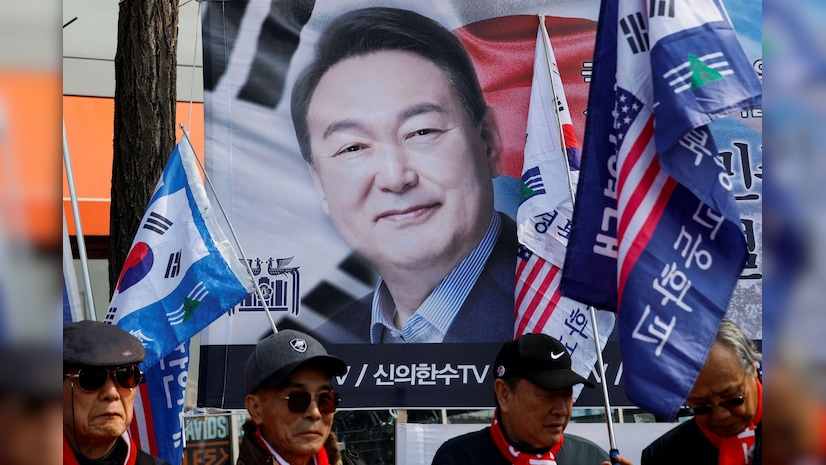
South Korea is set to conduct a snap presidential election in June following the impeachment of Yoon
The snap presidential election in South Korea is scheduled for June 3, subsequent to the impeachment of Yoon Suk Yeol.
On June 3, South Korea will conduct a snap presidential election to replace the recently ousted President Yoon Suk Yeol, as announced by the country’s acting leader, Han Duck-soo, on Tuesday.
The announcement was made four days following the Constitutional Court’s decision to remove President Yoon Suk Yeol from office due to his unsuccessful imposition of martial law in December. According to the law, South Korea is required to hold a presidential election within 60 days following Yoon’s removal from office. The upcoming president will fulfill a complete 5-year term.
The upcoming election is expected to be characterized by significant political polarization, leading to a direct contest between the two dominant parties: Yoon’s conservative People Power Party and its primary liberal opponent, the Democratic Party.
The People Power Party faces a challenging struggle to maintain its grip on power as it works to rebuild public trust and mend deep internal rifts caused by Yoon’s martial law maneuver.
The emphasis is on whether conservatives can consolidate and present a formidable candidate to challenge the probable Democratic Party nominee, Lee Jae-myung, who analysts suggest is the evident front-runner.
In the upcoming weeks, South Korea’s political parties are anticipated to initiate primaries for the selection of their presidential candidates.
The Democratic Party candidate is anticipated to be Lee, a strong party leader who encounters no significant challengers within the party. Lee, who narrowly lost the 2022 election to Yoon, guided the party through a tumultuous period where numerous members confronted troops dispatched by Yoon to enter the National Assembly building and vote against martial law, ultimately leading to the impeachment of the president.
Approximately 10 politicians from the People Power Party are anticipated to pursue the nomination.
Yoon’s perplexing choice to impose martial law, leading to the deployment of armed troops in the streets of Seoul and stirring the nation’s painful recollections of previous military governance, significantly tarnished his party’s image, despite its lack of direct involvement.
Several members of the reformist party openly condemned Yoon’s actions and voted to impeach him, sparking a conflict with the party’s traditionalists who backed the president.
Yoon boasts a loyal base of supporters who consistently organize large-scale rallies in Seoul and beyond. A widespread belief exists that Yoon is a target of an opposition aligned with leftist and North Korean sympathies, which is accused of manipulating elections to secure a legislative majority and conspiring to oust a patriotic leader.
“South Korea’s conservative party encounters considerable challenges as it approaches the forthcoming election. “Two months is a brief period to bring together the base, moderates, and a fringe driven by conspiracy around one candidate,” stated Leif-Eric Easley, a professor at Ewha University in Seoul.
According to Choi Jin, director of the Seoul-based Institute of Presidential Leadership, the party’s current leadership, which is comprised of Yoon loyalists, is likely to perpetuate the internal divide and weaken its electoral prospects.
Among the prominent candidates for the People Power Party presidential nomination, Labor Minister Kim Moon Soo is regarded as the most supportive of Yoon. He and Daegu Mayor Hong Joon-pyo were against the impeachment of Yoon, whereas former party leader Han Dong-hoon and senior party lawmaker Ahn Cheol-soo were in favor of his removal from office.
The final significant candidate is Seoul Mayor Oh Se-hoon, who has upheld a vague stance.
Choi indicated that Yoon is expected to leverage his influence to support pro-Yoon candidates vying for nominations and party leadership positions, enabling them to advocate for him during his upcoming criminal trial.
In January, Yoon faced charges of rebellion, and with the loss of his presidential immunity, he may now confront additional accusations, including abuse of power, which previously shielded him from most criminal prosecutions.
According to Duyeon Kim, a senior analyst at the Centre for a New American Security in Washington, the People Power Party “will need to nominate someone who can win over the public, particularly the moderates, rather than someone who can win the party’s primaries.” “Moderate Koreans and the younger generation in their 20s and 30s are expected to play a crucial role as swing voters.”
Opposition leader Lee, with experience as a provincial governor and a city mayor, is viewed by his supporters as a reformer appealing to the masses. However, critics view him as a demagogue who depends on inflaming divisions and vilifying his opponents.
Lee is currently involved in five active trials concerning corruption and various criminal allegations. If he assumes the presidency, it is probable that those trials will come to a halt due to presidential immunity.
Yoon has consistently charged that Lee’s Democratic Party is misusing its majority in parliament to hinder his agenda, impeach high-ranking officials, and cut the government’s budget bill.
Yoon described his declaration of martial law as a desperate effort to garner public backing in his battle against the “wickedness” associated with Lee’s party.
“Lee Jae-myung faces significant criticism from the South Korean public, who feel he nearly compromised the government for personal gain, manipulating the legislature to push Yoon to the brink and framing his legal troubles as political persecution,” Easley stated.
“Lee’s adept maneuvering, which involved the removal of progressive politicians who were not loyal to him, indicates that he essentially controls the Democratic Party nomination and has the most straightforward route to the presidency,” he stated.
All Categories
Recent Posts
Al Ahly shows strong interest in Pimienta
Pirates lose to Chiefs in the Nedbank Cup final
Tags
+13162306000
zoneyetu@yahoo.com



